Related Research Articles
John Benitez (born November 7, 1957), also known as Jellybean, is an American musician, songwriter, DJ, remixer and music producer. He has produced and remixed artists such as Madonna, Whitney Houston, Michael Jackson and the Pointer Sisters. He was later the executive producer of Studio 54 Radio. In December 2016, Billboard magazine ranked him as the 99th most successful dance artist of all-time.

"Disco Inferno" is a song by American disco band the Trammps from their 1976 fourth studio album of the same name. With two other cuts by the group, it reached No. 1 on the US Billboard Dance Club Songs chart in early 1977, but had limited mainstream success until 1978, after being included on the soundtrack to the 1977 film Saturday Night Fever, when a re-release hit number eleven on the Billboard Hot 100 chart.

"Try Me, I Know We Can Make It" is a song by American singer Donna Summer from her third studio album A Love Trilogy (1976).

"If You Could Read My Mind" is a song by Canadian singer-songwriter Gordon Lightfoot. The lyrics were written when Lightfoot was reflecting upon his own divorce. It reached No. 1 on the Canadian Singles Chart on commercial release in 1970 and charted in several other countries on international release in 1971.
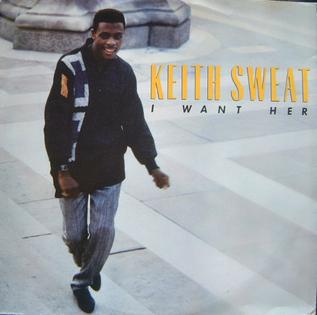
"I Want Her" is a song by American R&B singer Keith Sweat. As the first single from his debut album, Make It Last Forever, it reached number five on the Billboard Hot 100 and number one on the Hot R&B/Hip-Hop Singles & Tracks chart for three weeks. and became the most successful number one single of 1988 on the Billboard Hot R&B chart. "I Want Her" also peaked at number 38 on the dance chart. The song topped the R&B Billboard Year-End chart for 1988. It was ranked number 6 on complex.com's list of 25 best new jack swing songs of all time.

"Wake Up Everybody" is an R&B song written by John Whitehead, Gene McFadden and Victor Carstarphen.
"Dance " is a song by American singer Sylvester and his backup vocalists Two Tons O' Fun. The song appears on his 1978 album, Step II.

"You Make Me Feel " is a 1978 single by American disco/R&B singer Sylvester. The song was written by James Wirrick and Sylvester. It appears on Sylvester's 1978 album, Step II. It was already a largely popular dance club hit in late 1978, as the b-side of his previous single "Dance ", before officially being released as the album's second single in December. Music critic Robert Christgau has said the song is "one of those surges of sustained, stylized energy that is disco's great gift to pop music".

"Hot Shot" is a 1978 song written and produced by Andrew Kahn and Kurt Borusiewicz, and recorded by American singer Karen Young. The song was included on her debut studio album of the same name.

"Heaven Must Be Missing an Angel" is a disco song written by Freddie Perren and Keni St. Lewis. It was recorded by the American band Tavares in 1976. It was released as a single from the album Sky High! and was split into two parts: the first part was 3 minutes and 28 seconds in length, while the second part was 3 minutes and 10 seconds. "Heaven Must Be Missing an Angel" was re-released in February 1986.

"Shame, Shame, Shame" is a 1974 hit song written by Sylvia Robinson, performed by American disco band Shirley & Company and released on the Vibration label. The lead singer is Shirley Goodman, who was one half of Shirley and Lee, who had enjoyed a major hit 18 years earlier, in 1956, with the song "Let The Good Times Roll" for Aladdin Records. The male vocalist is Jesus Alvarez. The saxophone solo is by Seldon Powell, whose instrumental version, "More Shame", is the B-side.

"Keep on Dancin'" is a 1979 single by Gary's Gang, a disco group, from Queens, New York. Their debut release of "Keep on Dancin'" was their most successful.
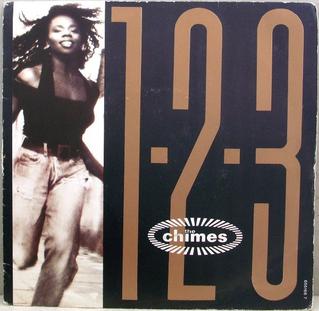
"1-2-3" is the debut single of British dance trio the Chimes, written by group members Pauline Henry, Mike Peden, and James Locke. Along with the track "Underestimate", their debut single reached number one for two weeks on the US Billboard Dance Club Songs chart and is also their biggest single. "1-2-3" was the Chimes' only Billboard Hot 100 hit, peaking at number 82. Although the song stalled at number 60 in the band's native UK, it found chart success in New Zealand, where it peaked at number four.
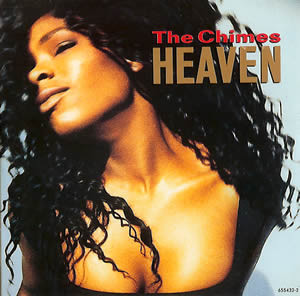
"Heaven" is a song by Scottish band the Chimes. It was released as their second single on 20 November 1989 and reached number one on the US Billboard Hot Dance Club Play chart, staying at the top for one week. The song also peaked at number 54 on the Hot Black Singles chart but failed to appear on the Billboard Hot 100. The song also reached number 24 on the UK Singles Chart and number five in New Zealand.
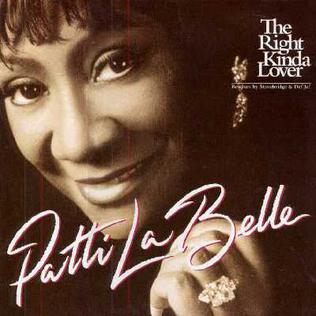
"The Right Kinda Lover" is a song recorded by American singer Patti LaBelle. It was written by Ann Bennett-Nesby, James Harris III, Terry Lewis, and James "Big Jim" Wright, while production was helmed by Jimmy Jam and Terry Lewis, with Wright as co-producing. The song was released as a single from her 1994 album, Gems, and appeared on the soundtrack to the film Beverly Hills Cop III (1994).
"Back and Forth" is a 1987 single by Cameo, and was released on February 24, 1987.

"What Cha Gonna Do with My Lovin'" is a 1979 single by Stephanie Mills from the album of the same name. It became a hit, reaching No. 22 on the Billboard Hot 100. It was a Top 10 hit on the R&B chart, as well as a minor hit in Canada.
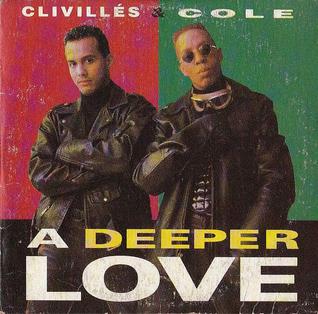
"A Deeper Love" is a 1991 single written by Robert Clivillés and David Cole, and performed by Clivillés & Cole, featuring vocals by Deborah Cooper and Paul Pesco. The song was the duo's fifth number-one on the US dance chart. On other US charts, "A Deeper Love" peaked at number 83 on the soul singles chart and number 44 on the pop chart. Overseas, especially in Europe the single charted higher, going to number 15 in the UK and number 8 on the Dutch Top 40.
"Devil's Gun" is a 1977 song by C. J. & Company from the album of the same name. Along with the tracks "We Got Our Own Thing" and "Sure Can't Go to the Moon", the song went to number one for five weeks on the Billboard disco/dance chart. The single also peaked at #36 on the Billboard Hot 100 and #2 on the R&B chart. The song's longevity had it barely cut the 1977 year-end chart despite its low peak position, at #100. The song would remain the lowest peaked song to appear in the year end for 37 years, and even unmatched for 20 years.
Gerald Roland Shury was a British songwriter, arranger, and record producer who worked in the late 1960s and 1970s.
References
- ↑ Henderson, Alex. "Biography". AllMusic . Retrieved July 25, 2011.
- ↑ Whitburn, Joel (2004). Top R&B/Hip-Hop Singles: 1942-2004. Record Research. p. 120.
- ↑ Roberts, David (2006). British Hit Singles & Albums (19th ed.). London: Guinness World Records Limited. p. 89. ISBN 1-904994-10-5.
- ↑ Whitburn, Joel (2004). Hot Dance/Disco: 1974-2003. Record Research. p. 356.
- ↑ "Disco-Disco: A history of Studio 54". Disco-Disco.com.
- 1 2 3 4 5 "US Charts > C. J. & Company". Billboard . Archived from the original on March 14, 2016. Retrieved February 22, 2016.
- 1 2 "CAN Charts Search > C. J. & Company". RPM . Retrieved February 22, 2016.
- ↑ "NLD Charts > C. J. & Company". MegaCharts . Retrieved February 22, 2016.
- ↑ "SWE Charts > C. J. & Company". Sverigetopplistan . Retrieved March 14, 2015.
- ↑ "UK Charts > C. J. & Company". Official Charts Company . Retrieved February 22, 2016.